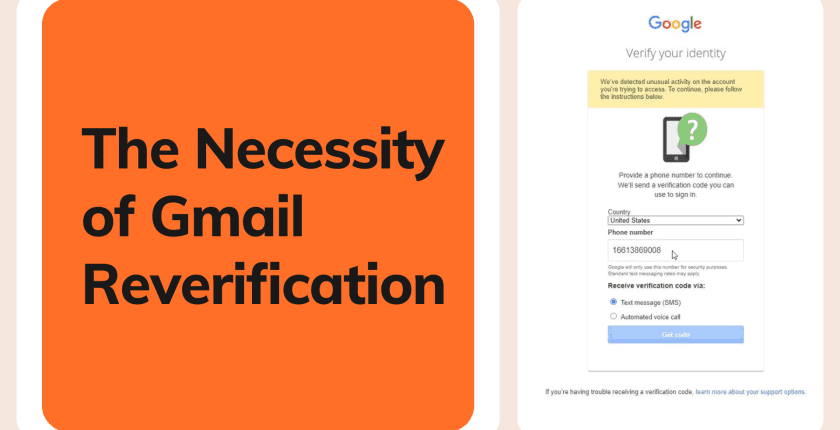The Necessity of Reverification: Understanding Why Gmail Accounts Require It and How to Bulk Reverify
In the digital landscape, Gmail accounts are essential for various online activities, from communication to accessing a plethora of Google services. However, the need for reverification of Gmail accounts arises for several reasons, prompting users to ensure the ongoing functionality and security of their accounts. This article delves into the significance of reverifying Gmail accounts, shedding light on the reasons behind it and providing insights into bulk reverification processes. Additionally, we will explore how Gmailcreator, a Google account maker, facilitates the registration, farming, and reverification of unlimited Gmail accounts, with added support for proxies to enhance trust.
The Reasons Behind Gmail Account Reverification
Account Security Measures
Gmail, like any other email service, prioritizes user account security. Periodic reverification acts as a security measure to confirm the authenticity of the account holder. By validating ownership through reverification, Gmail aims to protect users from unauthorized access and potential security threats.
Compliance with Security Standards
Reverification aligns Gmail with industry security standards and best practices. As cybersecurity threats evolve, regular reverification ensures that Gmail remains resilient against emerging risks. This commitment to security not only safeguards individual users but also contributes to the overall integrity of the Gmail platform.
The Importance of Bulk Reverification
Managing Multiple Accounts Efficiently
For individuals and businesses with numerous Gmail accounts, bulk reverification is essential for efficient management. Rather than manually verifying each account, bulk reverification streamlines the process, saving time and effort while ensuring that all accounts remain active and secure.
Avoiding Service Disruptions
Reverification prevents service disruptions that may occur if an account becomes inactive or is flagged for security reasons. By proactively reverifying accounts in bulk, users can mitigate the risk of service interruptions and ensure seamless access to Google services for both personal and professional use.
Gmailcreator – A Google Account Maker for Registration, Farming, and Reverification
Unlimited Gmail Account Creation
Gmailcreator stands out as a versatile tool that allows users to create an unlimited number of Gmail accounts efficiently. This feature is particularly useful for businesses, marketers, and individuals who require multiple accounts for various purposes, from marketing campaigns to organizational communication.
Efficient Account Farming
Beyond registration, Gmailcreator facilitates efficient account farming. Users can manage and organize a large number of Gmail accounts effortlessly, ensuring that each account serves its intended purpose without the need for extensive manual oversight.
Proxy Support for Enhanced Trust and Security
Gmailcreator supports the use of proxies during the account creation process. This not only enhances security but also adds an extra layer of trust to the accounts being created. Proxies help mask the user’s IP address, reducing the risk of detection or restrictions during the account creation and reverification processes.
In conclusion, the reverification of Gmail accounts is a vital aspect of maintaining security, compliance, and uninterrupted access to Google services. Bulk reverification is especially crucial for users managing multiple accounts, providing efficiency and security. Gmailcreator, as a Google account maker, not only streamlines the registration and farming of unlimited Gmail accounts but also supports proxy usage to enhance trust and security. By understanding the reasons behind reverification and utilizing tools like Gmailcreator responsibly, users can navigate the Gmail landscape with confidence, ensuring the ongoing functionality and security of their accounts.
Please do not hesitate to contact Autobotsoft if you have any questions.

